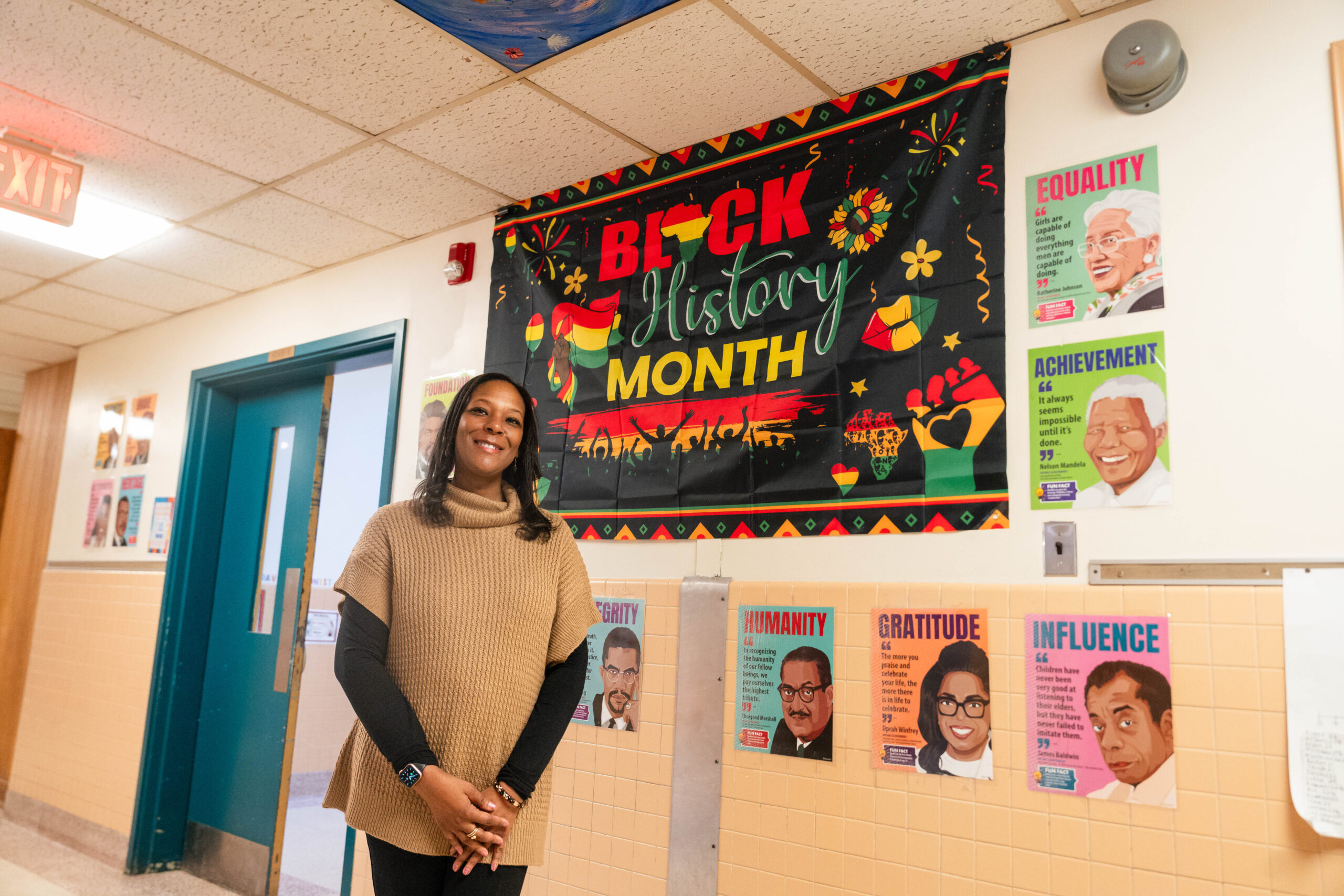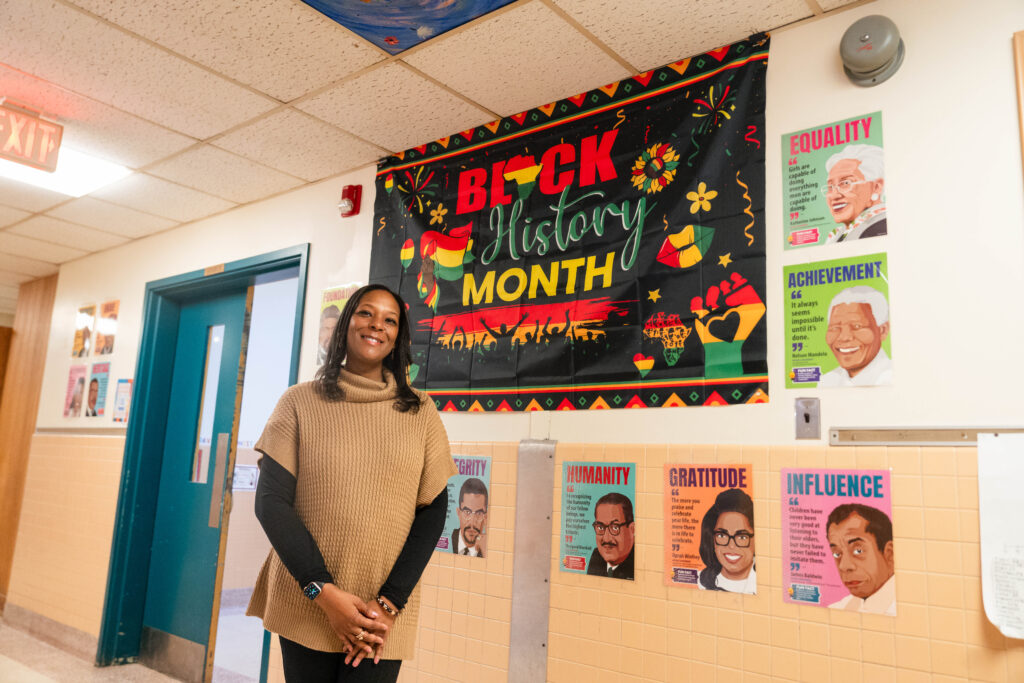
Black History Month is a time of reflection, celebration, and recognition of the contributions Black individuals have made throughout history. It is an opportunity to honor those who have paved the way for progress and those who continue to inspire change in our communities today. In the School District of Lancaster, this month serves as a reminder of the importance of representation, advocacy, and equity in education.
One such leader making an impact is Melanie Abney, a school counselor at Hamilton Elementary. Her journey from being a student at Hamilton to serving as a guiding force for the next generation embodies the spirit of Black History Month. Through her work, she continues the legacy of those who fought for educational access and equity, ensuring that every child feels seen, supported, and empowered.
Walking in Her Purpose
For Melanie Abney, school counseling is more than just a job, it’s a calling. As the school counselor at Hamilton Elementary, her journey has been shaped by deep-rooted connections to both the school and the Lancaster community. From walking the halls of Hamilton as a student to guiding today’s students through challenges and triumphs, Abney’s story is a powerful example of dedication, representation, and resilience.

A Full-Circle Moment
Born and raised in Lancaster, Abney attended Hamilton Elementary as a child before her family moved to the Conestoga Valley School District. After earning her bachelor’s degree in psychology and a master’s in school counseling from West Chester University, she returned to Hamilton—this time, as a counselor. For the past 18 years, she has been a steadfast presence, working tirelessly to support students academically, emotionally, and socially.
“To walk the same hallways where I once learned, now as a counselor helping students navigate their own journeys—it’s an incredible, full-circle experience,” Abney shares. She vividly recalls her childhood memories of Hamilton and how those early years shaped her understanding of community, belonging, and perseverance. Now, she instills those same values in the students she counsels, ensuring they feel seen, heard, and supported.
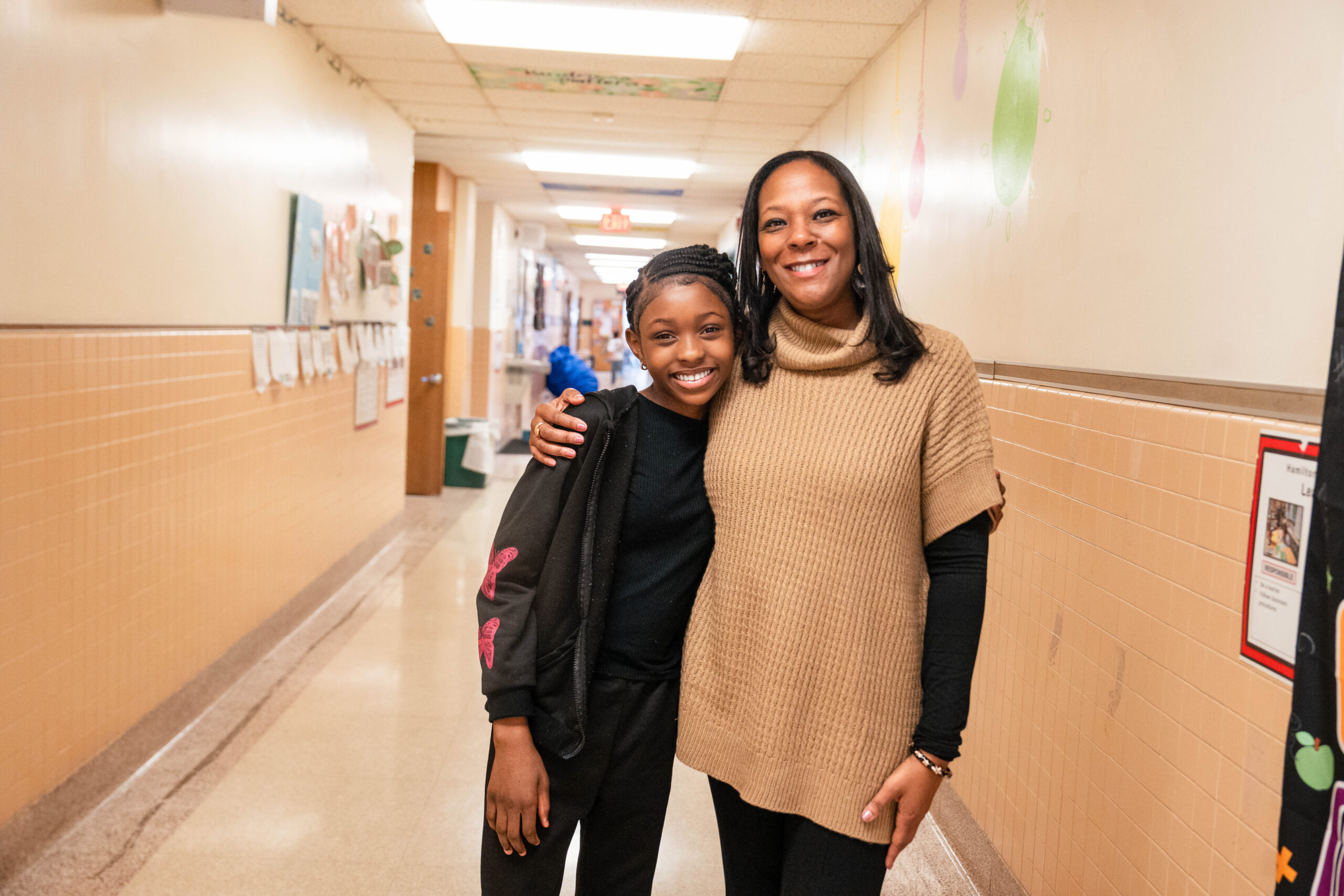
Answering the Call to Help
Abney’s passion for working with children has always been evident. Growing up surrounded by cousins, she naturally gravitated toward caring for others. Initially drawn to teaching, a high school psychology course sparked her interest in understanding human behavior. She found her path in school counseling, a career that blends education and social work—the legacies of her mother, a longtime educator in SDoL, and her grandfather, a social worker.
“My mom’s career in education and my grandfather’s work in social services were huge inspirations. Being a school counselor allows me to combine both influences to make a meaningful impact,” she explains.
Her firsthand experience as a Behavioral Health Technician (BHT) before becoming a counselor gave her a unique perspective on student needs. As a BHT, she worked one-on-one with students struggling with emotional and behavioral challenges, providing crucial support while allowing teachers to focus on instruction. That experience solidified her passion for mental health advocacy within schools, ultimately leading her to pursue a master’s degree in school counseling.
Breaking Barriers and Changing Perceptions
Mental health has historically been a taboo topic in many communities of color, something Abney has worked to change. Early in her career, she faced resistance when recommending therapy to families. Over time, through honest conversations and compassionate advocacy, she has helped shift mindsets.
“There was a time when families would say, ‘We’ll just pray about it’ or ‘We don’t need therapy.’ But I stood firm in the belief that seeking help is a strength, not a weakness. Now, after 18 years, I see a shift—mental health support is more widely accepted, and that progress matters,” Abney says.
Representation is another key motivator for Abney. She recalls a time when she was the only Black staff member in her building, a reality that could have made her leave. Instead, she stayed—for her students.
“I wanted them to see someone who looked like them in a leadership role. Representation matters. If they can see it, they can believe it for themselves,” she affirms.
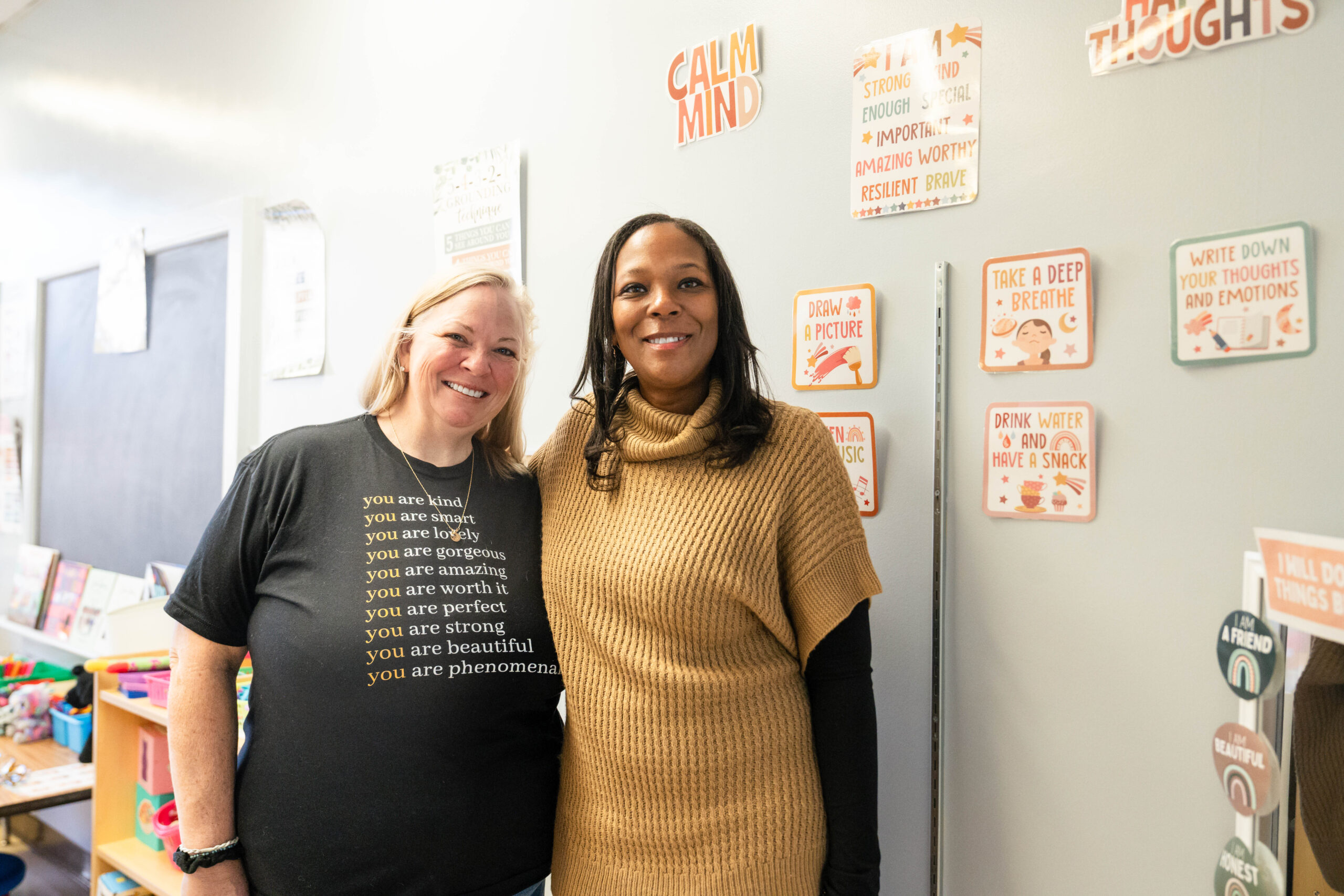
Creating a Culture of Confidence
Beyond individual counseling, Abney actively builds a culture of self-worth and empowerment at Hamilton. One of her favorite daily rituals is standing outside her office, greeting each student by name, and encouraging positive affirmations.
“I have an affirmation mirror in my office. When students come in feeling down, I ask them to pick words around the mirror and say them out loud—‘I am strong. I am a leader. I am enough.’ Seeing their posture shift, their confidence grow—that’s the power of words,” she shares.
She ensures that representation is woven into her lessons, books, and discussions, emphasizing Black history, culture, and resilience beyond the month of February. Recently, she intervened when a group of students used a racial slur without understanding its historical weight. She turned it into a teachable moment, educating them on the past and reinforcing the importance of respect and awareness.
Legacy in Motion
Abney’s commitment to equity extends beyond her school. She serves as the chairperson for SDoL’s BIPOC Network, creating a space for staff of color to connect and support one another. She also contributes to the Equity Steering Committee, working toward increasing representation among staff.
“Retaining and recruiting diverse educators is critical. Our students deserve to see themselves reflected in the adults who teach and guide them,” she states.
When asked about her legacy, Abney reflects on the young girl she once was—navigating predominantly white spaces, searching for confidence. Now, she ensures today’s students don’t have to search alone.
“To the little Black girls in our schools: Believe in yourself. Your uniqueness is your superpower. Be great.”
During Black History Month and every day, Melanie Abney’s impact is a reminder that history is not just about the past—it’s about the present and the future. Through her work, she is shaping a path for generations to come, proving that advocacy, care, and representation can change lives.
